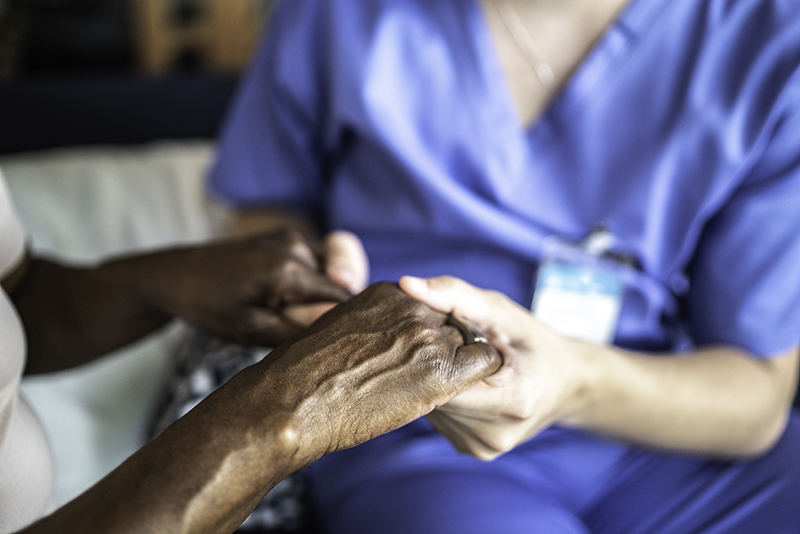
Our pathbreaking research
Exploring older, underrepresented patients’ needs
A new program called “All of Us” explores the needs of older patients who identify as LGBTQ+ and live with HIV.

A $2-billion U.S. National Institutes of Health research program is giving researchers an unprecedented chance to explore the health and care needs of historically underrepresented minority populations. The program, called All of Us, will collect health data from more than 1 million people who volunteer to share it for the benefit of research, and ultimately for healthcare.
For the OHDSI Center’s Brianne Olivieri-Mui, the data opens a new window for research on older people who identify as LGBTQ+—sexual and gender minorities—and those living with HIV. She developed her expertise in health outcomes and care quality for these groups while earning her doctorate at Northeastern and during her postdoctoral fellowship at the Marcus Institute for Aging Research at Harvard Medical School-affiliated Hebrew SeniorLife.
Before working with All of Us, Olivieri-Mui used data from Medicare and Medicaid to illuminate the impact of frailty and other geriatric conditions on healthcare utilization and quality. Specifically, her papers have shed light on matters ranging from patients’ frailty and sexual health to their ability to adhere to HIV medication regimens while in a nursing home.
Now an assistant professor with Northeastern’s Bouvé College of Health Science and the Roux Institute, Olivieri-Mui is leading research to devise, in the All of Us data, a way to measure frailty, a syndrome marked by an accumulation of deficits across functional, mental, and physical domains of health. She and her collaborators from Harvard seek to understand frailty among sexual and gender minorities. They also hope to make their metric available to other All of Us researchers interested in assessing patients on a continuum from healthy and independent, to frail and requiring escalating levels of care.
“Frailty reflects a detriment to one’s physiologic reserve,” she explains. The frailer patients are, the less able they are to recover from some health insult, such as a fall or heart attack.
Historically, the data on older people with HIV and LGBTQ+ populations has been extremely limited, Olivieri-Mui notes. But All of Us creates new opportunities for asking questions about their health, quality-of-life linked frailty, and healthcare needs which are critical to more evidence-based care, she says.
“We’re using data to help clinicians and health systems understand, predict, and head off bad outcomes in patients long overlooked,” Olivieri-Mui says. “The goal is greater health equity.”
We’re using data to help clinicians and health systems understand, predict, and head off bad outcomes in patients long overlooked,” Olivieri-Mui says. “The goal is greater health equity.
Brianne Olivieri-Mui
Affiliate Faculty, OHDSI Center